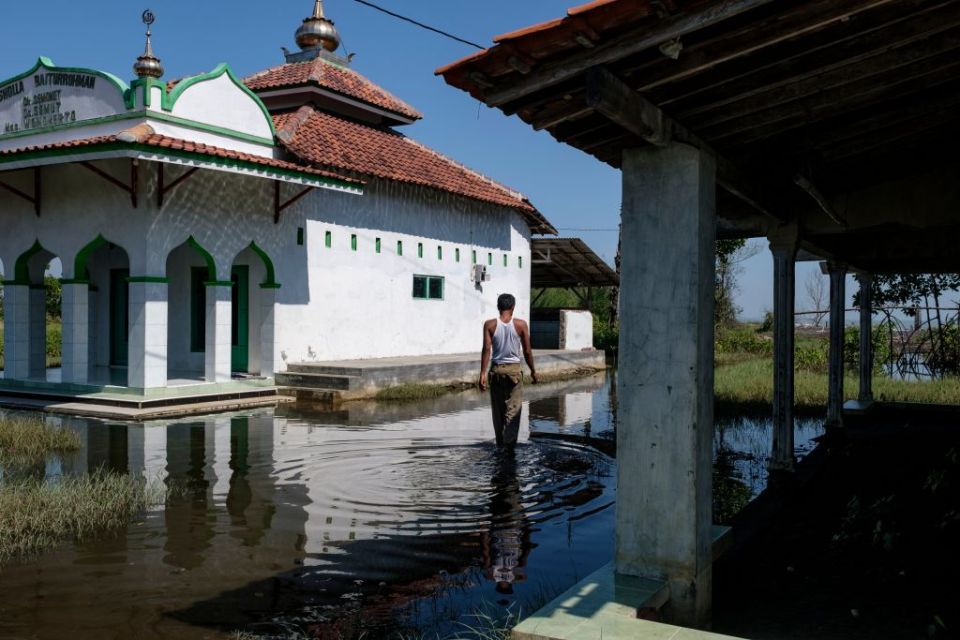Doling out more debt to developing countries won’t help without giving them a global voice

Rishi Sunak didn’t even show up to a summit to try and help reform global finance for developing countries at risk of climate change and stop the default position of more debt, writes Sandra Martinsone
We’ve heard again and again about the looming debt crisis for developed economies in the Western world, hastened by ever higher interest rates.
For low and middle income countries, this is a reality. They face a $27tn black hole – increasing by around $3.9tn a year to 2030 – when it comes to meeting the costs of climate related-loss and adaptation, alongside their health, education and social needs, according to Oxfam.
This week, French President Emmanuel Macron hosted the summit for “A New Global Financing Pact” in Paris to mobilise public and private sector support to meet the development and climate financing needs of low and middle-income countries. With leaders from both higher and lower-income countries, multilateral banks, philanthropic organisations, and civil society attending, the summit, which concludes today, expects to agree on the principles for future reforms of the global financial system. It should expand upon the proposals of the Bridgetown initiative led by Barbados Prime Minister, Mia Mottley. This is all a major task on the to do list of the new World Bank boss, Ajay Banja.
One leader who is notably absent from the summit is Rishi Sunak. Despite repeated appeals from the UK NGO sector, Sunak has sent Development Minister Andrew Mitchell, demonstrating a lack of commitment and urgency to address global challenges and work in partnership with lower-income countries. The UK is too central within the current global financial system to take a back seat and still expect change to happen.
The French government hopes the summit will generate “ambitious decisions” on increased access to climate finance and debt relief for lower-income countries.
More ambitious, responsible, and concessional grant funding instruments are needed to allow these countries to build green and resilient economies. It must go hand in hand with debt relief and cancellation packages to stop financial suffocation. This is where the UK has a unique role to play by adopting new laws to require all private debt contracts enforced in the UK to participate in a coordinated debt relief. Currently 90 per cent of all bonds owed by countries eligible for the G20 Common Framework are enforced here.
But we also need to look more holistically at the global financial system. Designed eighty years ago, it now struggles to deal with the challenges of this century. Richest countries, like the UK, who are key shareholders of the World Bank and the International Monetary Fund (IMF), must champion governance reform of these institutions by improving effectiveness and transparency, while giving lower-income and climate vulnerable countries a seat at the table. That France is hosting this summit is laudable, but it should not be at the whims of other economies to give a voice to those nations.
For example, the UN Tax Convention, a resolution presented by African nations, would give low and middle income countries decision making power of global tax affairs. Decisions these countries have been historically shut out of. For 75 years, the managing director of the IMF has been European, while the World Bank has been led by an American, thanks to a gentlemen’s agreement within both organisations. Ambitious reforms at the IMF would rebalance the stakes of shareholders, and increase the vote share of low incomes countries.
Simply giving more resources without critical assessment of the approach to development by global financial institutions risks deepening systemic inequalities. Imposed austerity policies requiring borrowing countries to reduce or limit public spending in order to get loans have put serious limitations on governments to deliver on their human rights obligations – access to food, education and health. Expecting markets and the private sector to reduce systemic poverty and deliver long lasting development and social progress while governments are weakened and poorly resourced is improbable. The World Bank and the IMF have been promoting regressive tax systems requiring borrowing governments to keep flat, low tax rates to incentivize private sector development, though in reality it means limiting domestic resource mobilisation and deepening the need for external borrowing.
It could also further erode trust between rich countries and lower-income states. For example, Ghana and Zambia have been continuously dependent on IMF loans since 1984 and are now in serious debt distress. As they lose money, they tend to lose trust in the organisations that provided the loans in the first place, as these loans can be a cover for the geopolitical and economic interests of other, richer countries.
If summits, in themselves, changed the world, we wouldn’t need so many of them. Indeed, if these countries had a voice in the institutions governing our global finance systems, we might not need so many summits. But we are running out of time and without leaders of nations like the UK showing up in any meaningful way, we enable the status quo to continue.
